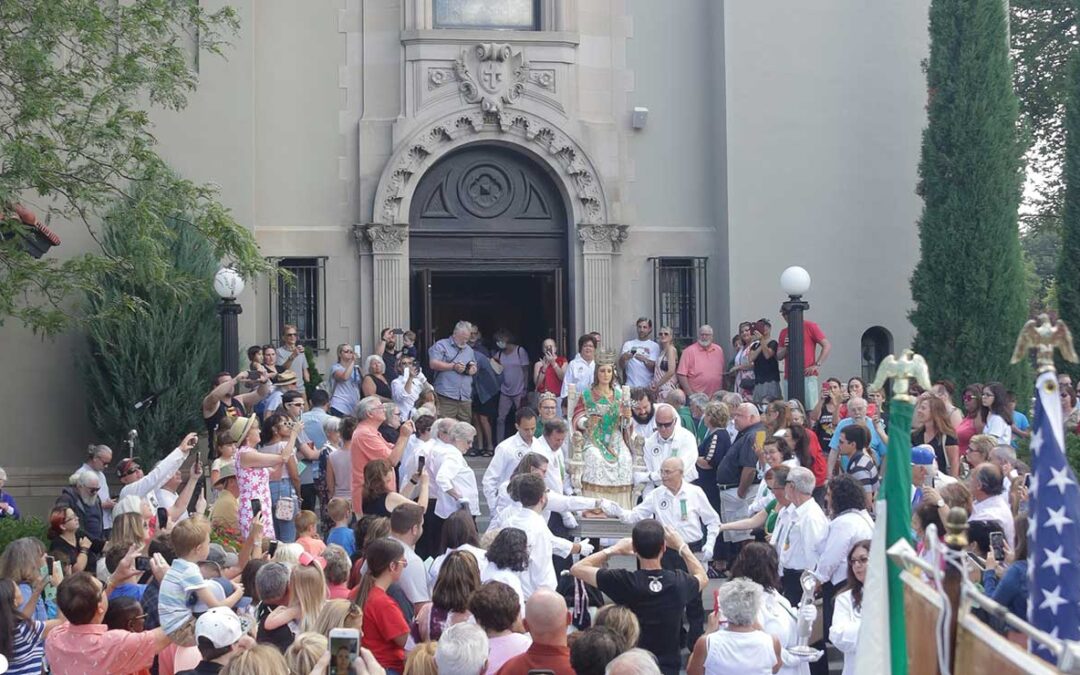Dear Friends,
On this weekend where the Santa Lucia Festival is taking place on our doorstep, I think it is good to reflect on a consistent teaching of Pope Francis. That is the teaching that we as disciples of Jesus have to be people who create a culture of encounter. For Pope Francis, encounter is a way of life. Just as we are shaped by our encounters with others, we also fail to be shaped by the encounters we avoid. Pope Francis’ call for Catholics to build a culture of encounter is not just an invitation to bring people together across differences in the spirit of mercy, solidarity, and hope; it is also how disciples emulate Jesus’ teaching and healing ministry by practicing inclusive outreach, engaging in mutually respectful exchange, and opening up new possibilities.
So, during the Santa Lucia Festival we should not only be talking to old friends and family members, we should also be engaging the strangers in our midst, especially the stranger who is most unlike us. Jesus shows us how an intentional approach to encountering others can produce personal and social transformation. Although Jews and Gentiles were divided by belief and custom, Jesus’ table fellowship meant breaking bread with people who both suffered and benefitted from the current system. With this way of being, Jesus reveals the dignity of those whom people considered insignificant and unworthy. He also fashions an ever-more-inclusive sense of communion that erases categories of “us” and “them.” He didn’t just heal the sick or provide food to the hungry; he made room in his life for sinners like Zacchaeus, an encounter that spurs this man to repent and make amends for his exploitation of others.
In his Encyclical, Fratelli Tutti, Pope Francis uses the story of the Good Samaritan to teach us about how we are to see ourselves and how we are to act. He says that Jesus shows us the question that inspires this story (“Who is my neighbor?”) is the wrong question to ask since it implies there is a non-neighbor, someone we are not expected to encounter with dignity and empathy. Jesus returns the question to the lawyer, “Who was neighbor to the robbers’ victim?” Instead of thinking of a neighbor as an object of my duty, Jesus invites us to ask ourselves: What kind of neighbor am I—and to whom? When Jesus concludes this story, his command to “Go and do likewise” does not mean to “Go and do exactly the same,” but serves as an invitation for every person to imagine what it means to apply the Samaritan’s courage, compassion, generosity, and solidarity by going out of our way and into the ditch, drawing near those who have been rendered invisible, insignificant, and in need. It means doing what we can, no more and no less.
Francis teaches that creating a culture of encounter is the path to restoring human dignity and building relationships that establish a greater sense of respect, safety, and trust. Social change can only happen when people feel welcome, valued, and free to be themselves. For this reason, the pope’s call means continually inviting people to overcome deception and fear, defensiveness and distrust. Such a commitment requires spiritual wisdom and persistence made possible by putting ourselves in touch with God, who is always seeking to encounter us. As I mentioned a couple of weeks ago, when I preached on this Gospel, we can only do this with God’s grace. We must start there. We are loved and redeemed first, then we can have the love in us to reach out to the stranger.
Enjoy the Festival. Meet someone new. Invite them to return next week and join us at Cabrini for more than the Festival.
Peace,
Fr. Damian



